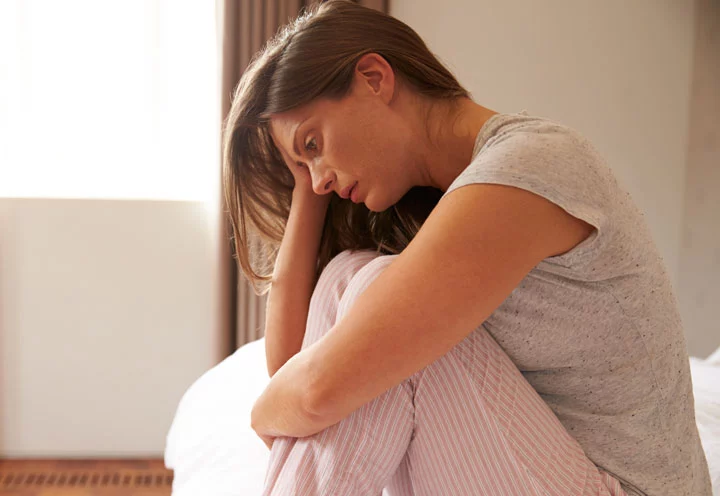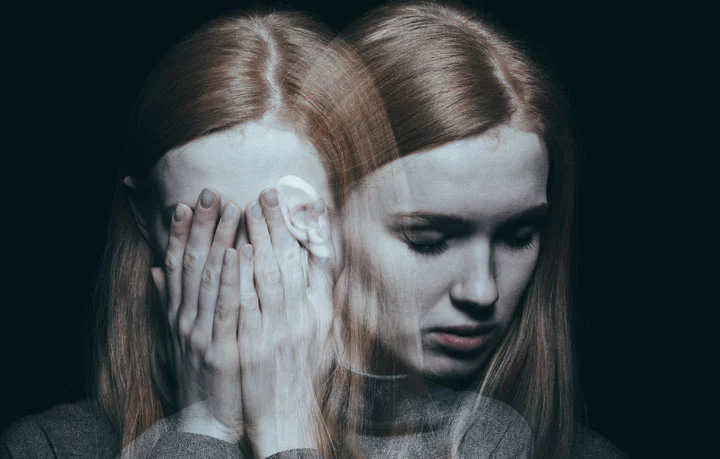What Is Rehab for Depression?

When many people hear the word rehab, terms like substance abuse, addiction, and sobriety probably come to mind. And while most rehabs are designed to treat substance use disorder, they’re certainly not the only variety.
Some of the most common rehab programs are actually designed for mental health disorders. Usually, the two varieties operate separately, but recent changes in substance abuse treatment are changing the layout of many rehab facilities.
More recently, the two are joining in combination to provide clients with an all-in-one option that treats both substance abuse and mental health challenges to attack the root of the addiction.
Operating separately, the two forms of rehab contain many of the same characteristics. However, they each have unique elements that make each form unique from the other.
Rehab for depression is one of the most commonly attended forms of treatment. It is often the landing point for individuals suffering from a major depressive disorder with or without the presence of substance abuse issues.
Experience True Healing
Our deeply-caring staff and the surrounding natural beauty offer an unparalleled healing experience.
What Is Rehab for Depression?
Rehab for depression describes any specific rehab program to treat and heal individuals who have any form of depressive disorder. Usually, the term encompasses inpatient forms of rehab, although outpatient varieties exist as well.
These programs include various options for healing, including cognitive-behavioral therapy and more. During rehab for depression, different pharmaceutical options may also be administered to arrive at the best outcome for long-term success.
If you believe you or someone you love may be suffering from depression, it’s essential to understand the symptoms associated with the clinical form of this disorder.
Am I Suffering from Depression?
It’s easy to stigmatize someone with depression as being vocal about how they feel and making it very clear they’re unhappy. However, this couldn’t be further from the truth.
Many people with depression suffer in silence – and another significant portion doesn’t even realize they suffer from the disorder at all. They may notice a change in how they feel or the fact that they embody some of the symptoms. However, depression is tough to put your finger on.
This is partially what makes this mental disorder so frightening. Changes occur in the mood and mindset of individuals who become depressed and are not sure why. They don’t feel like themselves, which can become incredibly demoralizing.
Many individuals who are finally diagnosed with depression express a sense of relief. By pinpointing the origin of their mood changes, they can move forward into recovery.
Besides being verbal about a general feeling of sadness, these are some of the most common signs of depression:
- Excessive sleeping or remaining in bed
- General change in attitude and neglect of important work and personal responsibilities
- Neglecting self-care and personal hygiene (men may stop shaving, women who previously wore makeup daily may quit wearing it entirely)
- Either a lack of eating or unhealthy overeating
- Excessive, random bouts of crying
- Constantly apologizing for things they didn’t do
- General withdrawal from family and friends (skipping social functions, etc.)
Depression can set in progressively, or it can happen all at once, mainly depending on what type of depressive disorder you’re dealing with.
Types of Depressive Disorders

Deciding which type of depression you might be suffering from can be difficult. Seven different varieties of depressive disorders exist. The following list highlights each different form with a brief description.
Major Depressive Disorder (MDD)
Major depressive disorder is one of the most common forms in existence. It’s highlighted by the appearance of the side effects mentioned above.
Bipolar Disorder
Many people aren’t aware that bipolar disorder is a form of depression. This is also known as manic depressive disorder and is highlighted by random bouts of extreme happiness (mania) and depression.
Postpartum Depression
This form of depression is most frequently associated with women who have recently given birth. Hormonal shifts are thought to be a cause of this type of depression.
Premenstrual Dysphoric Disorder (PMDD)
This form of depression is closely related to premenstrual syndrome (PMS), but the mood swings are more pronounced.
Seasonal Affective Disorder (SAD)
The seasons affect the onset of this depression through the light entering the eyes, causing a change in rhythm.
Atypical Depression
Atypical depression includes symptoms of the major depressive disorder but finds sufferers perking up when something positive happens. Many professionals make no distinction between this and MDD.
Because of all the different types of depressive disorders, pinpointing the exact cause of each can be difficult.
Experience True Healing
Our deeply-caring staff and the surrounding natural beauty offer an unparalleled healing experience.
What Causes a Depressive Disorder?
Depression has been studied for decades to find a root cause for the various forms of depressive disorders. However, there is no single cause of any type of depression.
A wide range of events can trigger the onset of depressive disorder, including a traumatic event, the loss of a loved one, the end of a marriage or relationship, and several other scenarios. Many times, it’s not just one particular event that causes depression.
The succession of several events may trigger depression gradually over a long period. There may be one larger or more significant event that starts a breakdown event – but the effect of multiple factors over time can certainly build-up to an important episode.
One of the worst things any sufferer of depression can do is turn to self-medication. When this happens, dual diagnosis is likely the best course of action.
Dual Diagnosis and the Vicious Cycle
Unfortunately, many people who suffer from a depressive disorder turn to self-medication during times of peril. This includes prescription pills, alcohol, and other illegal drugs.
This, in turn, ends up becoming a substance abuse issue. However, depression is at the root of the abuse.
Without the participation in dual diagnosis treatment, this turns into a revolving door of relapse and recovery. When only the substance abuse is treated, users may recover for a certain length of time.
However, once another life event happens that triggers feelings and symptoms of depression, it’s easy for the user to slide back into substance abuse. Why does this happen if substance abuse treatment has already been administered? Does this mean the user is an unsatisfactory candidate and doesn’t respond to substance abuse therapy methods?
The answer is no. The problem is the underlying cause (depression) isn’t treated. Without dual diagnosis therapy, these situations turn into classic cases of treating the symptom and not the disease.
It’s not uncommon for clients of substance abuse treatment centers to finally break through and achieve successful recovery after finding dual diagnosis treatment. This allows the user to simultaneously treat the depression and the substance abuse, leading to a much lower chance of relapse.
Does this mean rehab for depression alone isn’t helpful?
Is Rehab for Depression Helpful?

Without the presence of dual diagnosis treatment, is rehab for depression helpful? The answer to that question depends on a specific factor.
If the depression is accompanied by substance abuse, depression rehab alone may not be as effective. Without the proper education and awareness regarding substance abuse combined with depression, the client isn’t equipped with the tools they need to combat both.
Alternatively, if there is no presence of substance abuse, rehab for depression can be helpful and ultimately successful. This is, of course, assuming that the proper avenues of treatment are taken.
Each client responds differently. Multiple different forms of therapy exist for depression alone, and it’s essential to give each client the best odds for success.
This is when the intake and individualized treatment plan become critical. Each client is assessed for specific challenges they must overcome and analyzed based on which forms of therapy could be the most beneficial.
Using the assessment portion of treatment properly and pairing each client with the right counselor, rehab for depression can and has been ultimately successful for tens of thousands of clients.
Of course, other elements are at play during treatment that must be considered. The environment is just as critical as the specific form of therapy.
Holistic Alcohol and Drug Rehab for Residents of Houstonhttps://t.co/HCsgrtNcXI
— Exclusive Hawaii Rehab (@hawaii_rehab) February 28, 2022
The Specific Benefits of Hawaii for Depression Treatment
Studies have proven that rehabilitation facilities in serene and picturesque environments lead to higher odds of success. Beautiful scenery and a peaceful location are more conducive to the mindset needed to recover from a mental health disorder or substance abuse successfully.
Hawaii provides one of the most gorgeous settings available regarding locations for treatment. However, this is only one component of many when it comes to treatment for depression.
Components of Treatment for Depression
Components of treatment for depression must come together to create the perfect storm of conditions that promote recovery. These components include, but may not be limited to the following:
- The right location/environment
- The peers/community
- Access to the counselors the client responds to the best
- Proper avenues of treatment and therapy
- Additional options for therapeutic recovery
- Diet/nutritional planning
- Options for continued treatment post-rehab
What about the duration of rehab programs for depression?
Length of Stay in Treatment for Depression
The length of stay in treatment for depression varies based on the facility. One facility may show an average of 30 days, while another may show 60. As a general rule, however, the average falls somewhere around 40-45 days.
Possible Costs of Inpatient Depression Treatment
The average costs of inpatient depression treatment vary based on the location and level of care. However, the national average is between $10,000 and $60,000 per month for residential mental health rehab.
Most insurance providers, including Medicaid, cover most, if not all, costs of mental health rehab. Check with your insurance company for any questions regarding out-of-pocket expenses.
Lasting Recovery Through Rehabs for Depression
At Exclusive Hawaii Rehab, our goal is lasting recovery from any substance abuse or mental health challenge. With or without a dual diagnosis, our staff is well-equipped to treat each client, and top-of-the-line housing ensures the stay provides maximum comfort.
EHR has all the ingredients to form a recipe for successful, long-term recovery from depression and other challenges. Contact a member of our Intake Coordination team for more information regarding availability and schedule your rejuvenating stay with us today!
Experience True Healing
Our deeply-caring staff and the surrounding natural beauty offer an unparalleled healing experience.